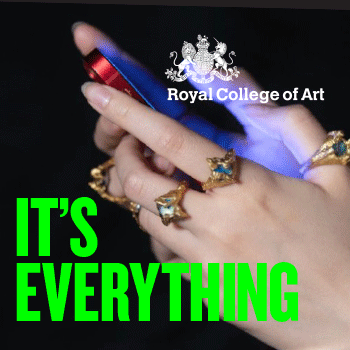V&A's refurbished Raphael Court
V&A unveils refurbished Raphael Court ahead of reopening
Reading Time:
1 min {{readingTime}} mins
The V&A had unveiled a first look at the newly refurbished Raphael Court – home to the Raphael Cartoons – following a landmark renovation in 2020 to mark the 500th anniversary of Raphael’s death. Together with a new interpretive approach, the refreshed gallery will transform the way museum visitors experience the Cartoons, lent to the V&A from the Royal Collection by Her Majesty The Queen. The gallery will reopen to the public for the first time when the V&A reopens on 19 May 2021.
The Raphael Cartoons are among the greatest treasures of the Renaissance in the UK. Shortly after his election in 1513, Pope Leo X commissioned Raphael to create a set of ten full-scale designs for a series of tapestries for the Sistine Chapel in the Vatican Palace, illustrating scenes from the lives of Saint Peter and Saint Paul. Once complete, the Cartoons – each measuring around 5 metres wide and 3.5 metres high – were sent to the workshop of merchant-weaver Pieter van Aelst in Brussels, which transformed the monumental designs into tapestries. Seven of the Cartoons survive to this day, brought to Britain in the early 17th century by the Prince of Wales, later Charles I. They remained in the Royal Collection and were lent to the South Kensington Museum – now the V&A – by Queen Victoria in 1865 in memory of Prince Albert and have been on public display in the museum ever since.
Working with architects Feilden Clegg Bradley Studios and lighting designers Studio ZNA, The Raphael Court has been reconceived to celebrate the Cartoons, focussing on their extraordinary details and vibrant palette. State-of-the-art LED lighting reveals the texture and vitality of the works, whilst acoustic panelling creates a more comfortable environment. Bespoke furniture provides opportunities to sit and enjoy the works and the gallery at leisure.
An extensive high-resolution recording project carried out by Factum Foundation has provided incredible new images of the Cartoons, which will be available for visitors to explore in the gallery, as well as online. Graphics by Polimekanos, and digital gallery interpretation by Spiral Productions produced with the V&A, harness this imagery to reveal in-depth stories about the creation and history of the Cartoons – the first time that audiences have ever been able to explore the masterpieces in such detail.
To help launch the gallery, the V&A has also collaborated with conductor Oliver Zeffman, violinist Viktoria Mullova and the Academy of St Martin in the Fields. Bringing this iconic gallery to life, the refreshed Raphael Court provides a stunning backdrop for the new visual album ‘Live from the V&A’. Performing a programme of Bach, Mozart, Honegger and Pärt, the video performance will be available from 4 June on Apple Music and Marquee TV, a streaming platform dedicated to art, culture and performance.
Tristram Hunt, Director of the V&A, said:
“We’re delighted to be reopening the Raphael Court following this landmark refurbishment to mark the 500th anniversary of Raphael’s death. The transformed gallery – with its new, digital interpretation – places the Raphael Cartoons at its heart, revolutionising the public’s appreciation of these remarkable works of art and repositioning Raphael as craftsman and designer as much as Renaissance genius. We look forward to welcoming visitors back to experience the Raphael Cartoons in a whole new light when the museum reopens on 19 May.”
The refurbished gallery’s new interpretive approach provides the public with a deeper level of access to the Raphael Cartoons, enhancing our understanding of these monumental works of art. In August 2019, the V&A and Royal Collection Trust worked with Factum Foundation and Momart on a high-resolution recording project, supported by the Royal Commission for the Exhibition of 1851. This involved unframing each Cartoon to capture high-resolution 3D data of the surface, and panoramic composite photography to record the colour and gather infra-red data. Each 3D image took over 95 hours to capture with four of Factum’s Lucida 3D Scanners mounted on scaffold towers. The resulting images reveal the Cartoons’ unique surface texture – from the joins of the composite sheets of paper that make up each Cartoon and the tiny pinholes that were made to translate the Cartoons into tapestries, to the creases and tears, and marks of subsequent restoration and repair, from throughout their lifetime.
The imagery captured is crucial for the study and future care of the Cartoons, and enabled us to greatly enhance the gallery interpretation, as well as our online content offer, in an unprecedented way. In the Raphael Court, this pioneering imagery informs a suite of new, digital interactive interpretation, available in the gallery on visitors’ mobile devices. Using QR codes to access the interactives, visitors can discover in-depth stories about the creation and history of the Cartoons, which bring to life their design, making, and incredible survival to the present day. Created by Spiral Productions with the V&A, interactive features and games enable visitors to get up close to the detail and creation of the Cartoons by zooming into the ultra-high-resolution photography, infrared imagery, and 3D scans of the Cartoons; to discover the Cartoons’ function as full-scale tapestry designs for the Sistine Chapel; to uncover the ingenuity of Raphael and his workshop and their design process; and to learn about the rescue, life and status of the Cartoons in England, from their arrival in the 17th century up to the present day. Together, the interactives highlight the significance and status of the Cartoons, illuminating their enduring fascination and enabling visitors to explore the fragile artworks as never before while in their presence.
Online, the V&A website hosts a range of in-depth, complementary content, providing visitors unique access to explore the Cartoons from anywhere in the world. Launched in January 2021 during a period of temporary closure for the museum, the V&A’s Raphael webpage experienced a 1,500% increase in views.
One of the V&A’s largest and most dramatic galleries, The Raphael Court is almost identical in proportion to the Sistine Chapel and was last refurbished from 1992 to 1996. Combined with enhanced interpretation, the new scheme – with its darker colour palette, state-of-the-art lighting, refreshed furniture, new graphics and on-site digital experience – transform visitors’ viewing experience and their enjoyment of these works of art.
The Raphael Court is also integral to the museum’s programme of events and activities including the V&A’s Fashion in Motion series. Dedicated events lighting and improved acoustics have been central to considerations and now provide the space with even greater flexibility.
The Raphael Court is home to other artworks, including an example of a later tapestry made in the 17th century in England after Raphael’s design – The Miraculous Draught of Fishes, on loan from The Duke of Buccleuch & Queensberry KT KBE, and The Trustees of the Buccleuch Living Heritage Trust. The original set of tapestries for the Sistine Chapel is on view in the Vatican Palace in Rome. Other important Renaissance works in The Raphael Court include a marble singing gallery from Florence – likely seen by Raphael – and a detached fresco by Perugino, Raphael’s master. On display in the Court apse, a monumental altarpiece from Valencia, Spain, is a rare example of the Gothic International Style and illustrates a founding event of the city under the protection of Saint George.
The refurbishment of the Raphael Court is supported by Lydia & Manfred Gorvy, Julia and Hans Rausing, American Express, the Royal Commission for the Exhibition of 1851, Sir Michael and Lady Hintze, the Robert H. Smith Family Foundation, the American Friends of the V&A, and many other generous donors.
Author:
Published:











